Report from the Logical Olympiad Finals 2013
It was a cold, windy morning on Monday, 25th of November, 2013. The Logical Olympiad Finals in the Ball Games Room of Prague Castle was at its beginning. The day was a culmination of several months of work, carried out by many Mensans, working with children who are unafraid to use their own brains, from all over the Czech Republic.
After the preceding nomination and regional rounds with approximately 41,000 participants from 1969 schools from the entire Czech Republic, along with some foreign schools from the USA, Australia, Germany, and Belgium, the day finally came in which the results of the meticulous and often exhausting work of the organizers should have borne fruit. The day came in which all 195 children who achieved the best results in the regional rounds and qualified for the finals were looking forward to.
How did the day go? Before 7 a.m., the team of organizers arrived. Some problems arose while entering the gardens leading to the Ball Games Room, but in the end, the organizers and the Guard agreed on the terms, and the cars bringing all of the equipment for decoration, catering, hardware, and other necessary items, were allowed to enter the premises. The entry of all of the other adults and children was subsequently without any problems.
At first, it was necessary to take all of the materials from the cars – food and drinks, computers and computer accessories, forms, a lot of books, and other presents for all participants, as well as prizes for the winners. Once this was completed, the co-ordinators of the individual activities started assigning tasks to the members of their teams, so that everything was prepared before the children arrived. It was necessary to prepare the tables for registration of the participants, a playing area for entertainment of the participants before the beginning of the competition and during the breaks, and to arrange the refreshments on the tables in the ground floor. Arranging the tables in the main hall in rows and covering them with tablecloths, bringing the chairs and aligning them, numbering the individual seats so that every competitor had their own spot according to the registration list, setting up and testing the screens, audio, and controls for interactive work on the screens – all of that had to be done before the children arrived. In the meantime, more computers and printers for controlling the tests and processing the results were being prepared in the foyer. Books and small presents for all participants as well as prizes for the winners were being bagged elsewhere. The co-ordinators of individual activities demonstrated their exceptional organizational skills, and everything was prepared before the first children arrived. When the bus with children from Moravia arrived, everything was in place. Children from nearby and from Prague were arriving as well, along with rare guests from Mensa International and foreign national Mensas, who were interested in our experience with organizing the competition. From as far as Australia, a Vice-Chair of Mensa International, Therese Moodie-Bloom, and an editor of the worldwide Mensa magazine, Kate Nacard, flew in. Other guests included the Chair of Mensa France, Ingrid David, and of Mensa Finland, Kaj Lindholm. Last (but not least), the representatives of the sponsors arrived.
At 10 a.m. sharp, the Chair of Mensa CR, Ing. Tomas Blumenstein, opened the 2013 Logical Olympiad Finals. The opening speech was followed by the beginning of the contest itself. Altogether, 8 sessions of various logical tasks awaited the competitors, from the written tests, through projected tasks answered by pressing the correct button on the panel, along with anagram solving, through to the interactive part, consisting of assembling words, pictures, dice, and equations, in which only the fastest one wins or loses the points.
The tasks were designed to support curiosity and a creative attitude to the problems. The competitors were divided in advance into three categories A, B, and C. Category A consisted of the youngest children, aged 6-10 years, category B consisted of children aged 11-15, and category C consisted of secondary school students. The contest started with a four-page test containing logical tasks – those were different for each category, to reflect the age of the participants. Once this was completed, the assessment team started the evaluation, checking the results and recording the first results on the scoreboard. Subsequent tasks were projected, always separately for competitors of one category, and responses were immediately recorded in the score sheets on a PC. In the meantime, the contestants from other categories had the opportunity to take refreshments or lunch. We were pleased and surprised both in the dining area and the playing area by the children’s excellent behaviour – all of the children were calm, never yelling or pushing each other around, as we know from their peers at schools, but rather focusing on the activities they were performing. The reason might have lain in the fact that they did not know one another very well, or perhaps in their characters, being more thoughtful than other children. One could not have helped but think about things such as how they would look and what would they be doing in 30, 40, or even 50 years, how the world would change, and who would be the new leaders.
After the lunch break, the contest continued with a 5 by 5 word table when the task of the participants was to write down randomly projected letters in the table, and after the projection ended, they should have highlighted the substantives and verbs they were able to find in the table. You would probably be surprised by what words they were able to find. The next competition was Tetris - placing given shapes into a mesh. The shapes were identical for all categories, however the mesh shape was more complicated for the older categories. This was followed by memory games, puzzles with matches, and a well-known puzzle game, called “zebra”. The assessment of some of the tasks was very demanding. The children gave us a lesson on the topic “intelligence is boundless” – even in some tasks, where we were sure that only one solution was possible, the children found a different solution, and we had a hard time discussing and deciding whether the solution was correct (and often had to concede that it indeed was).
While we were evaluating the tests, presentations of Open Gate and the Kellner Family Foundation, followed by the Mensa presentation, were taking place in the main hall. Despite the understandable tension during the long wait for the results, several students showed their interest in the possibility of studying at these schools, their questions seemed to be well directed, and their interest serious.
In the end, the moment that everyone had been waiting for finally came. Prizes for the top ten ranking children from each category were brought into the hall, and the results were announced. The tension grew as the ceremony began from 10th place upwards, and everyone was still wondering if the first place and the dreamt-of laptop could still be waiting for them. The 1st place in Category A was won by Martin Dedek from the Private Primary School Path to Success in Prague 6, the winner of Category B was Pavel Hudec from Jiri Guth-Jarkovsky Grammar School in Prague 1, and the winner of Category C was Ondrej Motlicek from Sumperk Grammar School, who we knew as a winner from the previous year in Category B.
After that, the winners were photographed and interviewed, everyone started saying their farewells, and the winners had to sort out how to take away their prizes, which were often big, both in weight and volume.
Thanks to all volunteers from the team of organizers, the principal organizers. Tomas Blumenstein, Zuzana Polakova, Petr Mazal, Hana Kalusova. and Pavel Celba. could express their happiness with the way the finals went.
We would also like to express our gratitude to the general sponsor of the 2013 Logical Olympiad, THE KELLNER FAMILY FOUNDATION and OPEN GATE – Primary and Grammar School, as well as to the other sponsors, such as the OKD Foundation, and many others.
The 2013 Logical Olympiad is over. We are looking forward to the next one, the 7th year, the 2014 Logical Olympiad.
Related topics
26.11.2013
Logical Olympiad 2013 – finals 25.11.2013 |
|||
|---|---|---|---|
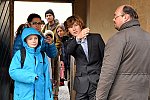 |
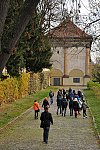 |
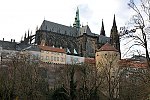 |
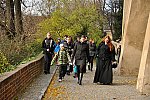 |
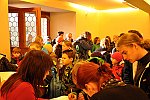 |
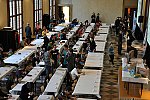 |
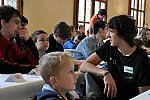 |
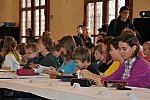 |
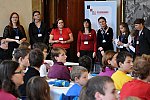 |
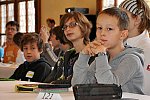 |
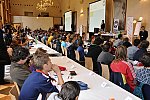 |
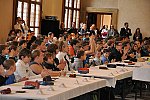 |
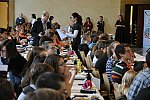 |
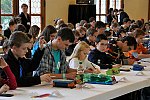 |
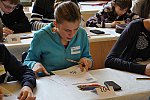 |
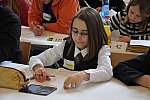 |
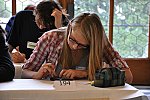 |
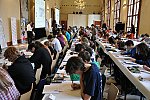 |
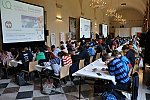 |
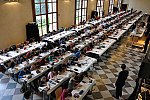 |
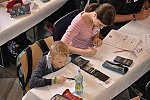 |
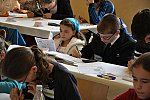 |
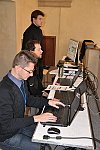 |
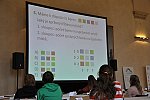 |
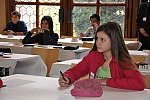 |
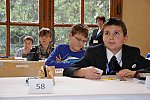 |
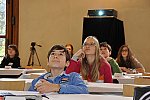 |
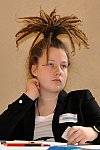 |
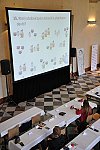 |
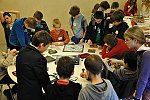 |
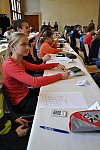 |
 |
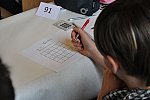 |
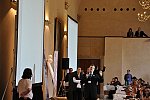 |
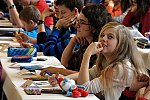 |
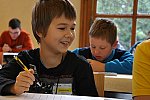 |
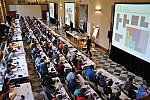 |
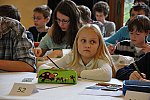 |
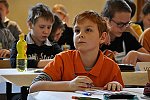 |
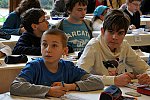 |
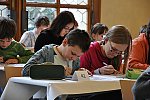 |
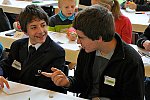 |
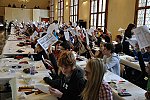 |
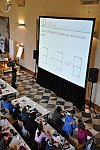 |
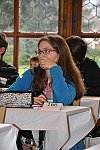 |
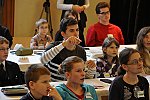 |
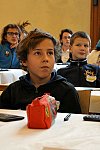 |
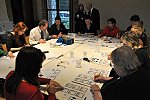 |
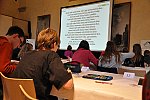 |
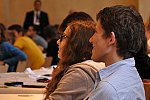 |
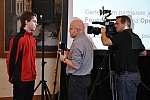 |
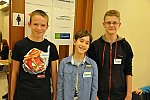 |
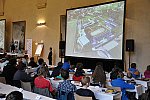 |
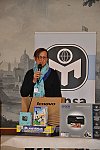 |
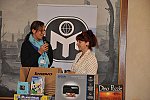 |
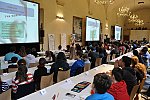 |
 |
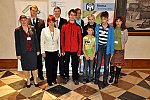 |
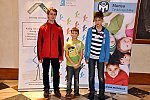 |
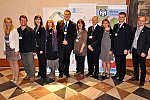 |
